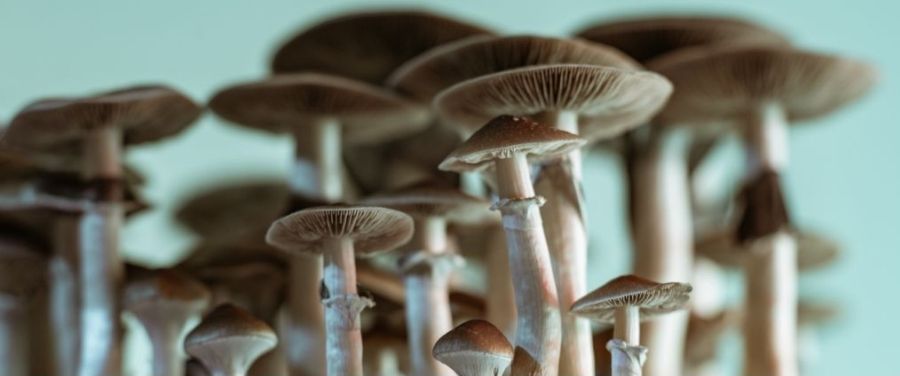Nature has given us a wide range of food items in the form of vegetable and one of them is mushroom. Various species of mushrooms exist globally, which are preferred due to their delicious taste. At the same time, the nutrients present in mushrooms also make it extremely beneficial for health.
This article covers the amazing science-based health benefits of eating mushrooms and its side-effects.
Types of Mushrooms:
Although different species of mushroom are found worldwide, but here we are giving the names of three such species, which are easily available. They are also edible:
a. Button Mushroom:
This is the most common type of mushroom. It is also called Agaricus Bisporus and white mushroom. Its consumption is around 30% worldwide.
b. Shiitake Mushroom:
Shiitake mushrooms are also known as Lentinula edodes. Around 17% of this type of mushroom is consumed worldwide.
c. Oyster Mushroom:
Oyster mushroom is also known as Pleurotus Ostreatus. About 27% of this type of mushroom is consumed globally.
Mushroom Nutritional Profile:
Per 100 gram serving of raw mushroom (white) provides:
- Calories: 22
- Carbohydrate: 3.3 gram
- Protein: 3.1 gram (6% DV)
- Vitamin C: 2.1 mg (4% DV)
- Vitamin D: 18.0 IU (5% DV)
- Riboflavin: 0.4 mg (24% DV)
- Niacin: 3.6 mg (18% DV)
- Vitamin B: 60.1 mg (5% DV)
- Folate: 16.0 mcg (4% DV)
- Pantothenic Acid: 1.5 mg (15% DV)
- Choline: 17.3 mg
- Betaine: 9.4 mg
- Calcium: 3.0 mg
- Iron: 0.5 mg (3% DV)
- Magnesium: 9.0 mg (2% DV)
- Phosphorus: 86.0 mg (9% DV)
- Potassium: 318 mg (9% DV)
- Zinc: 0.5 mg (3% DV)
- Copper: 0.3 mg (16% DV)
- Cholesterol: Zero
*DV stands for Daily Value.
11 Science-Based Health Benefits of Mushroom:
Mushrooms have long been used as a diet as well as medicine. This is the reason why in this part of the article we are trying to explain in detail the benefits of eating mushrooms. Before that it is important to understand that the benefits of mushrooms can only provide relief in the problems given below. Complete treatment of these problems depends on medical consultation. Benefits may include:

1. Rich in Vitamins:
Mushrooms are rich in many types of vitamins such as vitamin-B1, B2, B9, B12, Vitamin-C and Vitamin-D2. All these vitamins can be beneficial for your health.
Due to the presence of all these vitamins it may lead to the prevention of anemia, beneficial for the pregnant and the fetus, in controlling cholesterol, and in many ways for the skin. In such a situation, being full of vitamins, mushrooms can be considered very beneficial in health.
2. Prevent Cancer:
According to a scientific study, using mushrooms can be a panacea to prevent prostate and breast cancer. Mushrooms have anti-tumor, immunomodulatory and anti-cancer properties. It also contains phenolic compounds, due to which the benefits of mushrooms can be achieved in breast cancer as well as in prostate cancer.
In addition, it can also be helpful in preventing cancer-enhancing cells from growing. Despite this, it is also important to understand that cancer is a fatal disease. Therefore, the treatment of this problem depends on the medical advice of a doctor only.
3. In Diabetes:
Mushroom can also be considered as a useful home remedy for diabetes. According to a scientific study, certain types of mushrooms have anti-diabetic properties, which may help reduce the amount of sugar present in the blood.
Due to these properties, mushroom can help control diabetes and prevent its effect from growing. Also, if mushrooms are used with diabetes-relieving drugs, insulin levels in the body may improve.
4. Strengthen Immune System:
Immune system helps your body fight infections and diseases. At the same time, if it becomes weak, the body can easily fall prey to diseases. In this case, mushrooms can also be used as food to strengthen the immune system. It is enriched with polysaccharides, which can strengthen the immune system.
Apart from this, a good amount of vitamin D is also found in mushrooms, due to which the benefits of mushroom can be achieved in keeping bones healthy.
5. Mushroom Benefits for Weight Loss:
The benefits of eating mushrooms can also be helpful in reducing and controlling weight gain. According to a research institute in China, it has anti-obese properties, which can be beneficial in reducing weight gain. Mushrooms with high dietary fiber and high quality protein, along with low fat, can be a good diet for weight loss.
Apart from this, mushrooms also contain many bioactive compounds such as polysaccharides, terpenes, polyphenols, flavonoids with fiber, which can help reduce the cardiovascular problem caused by obesity.
However, keep in mind that to get the benefits of mushrooms in the problem of obesity, it is also necessary to do regular physical exercise and make lifestyle changes.
6. Prevents Stomach Problems:
A research conducted on mice found that mushrooms have anti-ulcer properties, which may help to overcome ulcers to great extent.
In addition, the amount of fiber present in it can also be effective in treating constipation. On this basis, it can be said that mushrooms can be considered beneficial for stomach problems.

7. Mushroom Benefits for Healthy Heart:
Mushrooms contain high fiber, unsaturated fatty acids and sodium as well as components such as Eritadenine, Phenolic Compounds and Sterols. All these components can reduce bad cholesterol (low-density lipoprotein) by increasing the level of good cholesterol (high-density lipoprotein).
In addition, these components may also show positive effects on blood pressure, oxidative stress, and inflammatory damage. Because of this, the benefits of eating mushrooms can be considered helpful in keeping the heart healthy as well as protecting it from many other problems.
8. Boost Metabolism:
Many problems can be encountered due to poor metabolism. This includes problems with heart disease, obesity, cancer and diabetes etc. The benefits of mushrooms can be seen here.
The antioxidant and anti-inflammatory properties found in it can be helpful in removing all these problems. Also, it can strengthen the metabolism by eliminating the problem.
You may also interested in: How to Speed Up Slow Metabolism: 13-Day Metabolism Diet
9. Benefits of Mushroom for Skin:
Mushrooms have anti-bacterial and anti-microbial properties, which can help prevent bacteria causing pimples on the skin to thrive.
Due to this, natural treatment of acne can also be done by consuming mushrooms. According to a study, mushroom extracts have antioxidant and anti-aging properties.
Due to these properties, mushrooms can help protect the skin from the problem of oxidative stress as well as prevent the effects of aging on the skin.
In addition to diet, mushrooms can also be used to apply on the skin. Actually, mushrooms have moisturizing properties, which can help retain skin moisture and help reduce wrinkles.
Also, mushrooms contain phenolics, selenium, polysaccharides, polyphenolics, terpenoids, vitamins, and volatile agaric compounds, which can be effective in relieving skin problems.
In addition, mushrooms also have skin whitening properties, due to which they can also be used as natural skin lighteners. This is the reason why mushrooms are also used in making many skin related products.
10. In Hair Fall Treatment:
Most people are troubled by the problem of hair loss. Mushrooms can be beneficial to overcome this problem.
A related research has found that it contain minerals such as iron, selenium and copper along with vitamin D and antioxidants. All these nutrients can be beneficial in removing the problem of hair loss as well as making them healthy and strong.
Also, this element of mushroom can be useful in the remedy of preventing hair loss and dandruff. On this basis, it can be assumed that mushrooms can help maintain hair health by reducing the cause of hair loss.
11. Lowers Cholesterol:
Mushrooms can be used as a cholesterol-lowering diet. According to a scientific research, consumption of oyster mushroom can control cholesterol and triglycerides.
Also it can be effective in reducing systolic and diastolic blood pressure. On this basis, mushrooms can be considered helpful in controlling cholesterol.
You may also interested in: High Cholesterol Diet : Foods to Eat and Avoid
How to Use Mushrooms?

Mushrooms can be used in many ways; including:
- Can be used in broths and soups.
- Different varieties of mushrooms can be used in many types of dishes.
- Mushrooms can be eaten by grilling them with butter.
- Mushroom powder can also be used to make soups and sauces.
- Mushrooms or its powder can also be used to flavor sandwiches and breads.
- Frying mushrooms can also be included in the diet.
- Mushrooms can also be used with eggs. You can make mushrooms and egg omelets.
- Mushrooms can also be eaten by boiling them with other vegetables.
- Mushrooms are commonly used as pizza toppings. While preparing pizza, you can also mix cheese and other vegetables with mushrooms.
How Much To Eat (Recommended Intake):
Fresh mushrooms can be consumed up to 227 grams (8 oz) per day. However, it is possible to change its quantity depending on the person’s age as well as his/her health condition. Therefore, to know the appropriate and safe quantity of mushroom for yourself, consult a dietitian.
Side-Effects of Mushroom:
Mushroom benefits are only as long as it is consumed with proper quantity and correct information. It can also has some health side-effects if consumed in an unbalanced quantity or incorrectly. Some of these side-effects include:
- The benefits and side-effects of mushrooms may depend on the quality of the mushroom. Indeed, some mushrooms have toxic effects, which can lead to fatal risk conditions such as heart failure, liver failure, chest pain, seizures, gastroenteritis, intestinal fibrosis, and kidney failure.
- To avoid the side-effects, only fresh and good mushrooms should be eaten. Because, fungus-infused mushrooms can be harmful for your health.
- Some people may be allergic to mushrooms. So if someone is allergic to it, they should avoid to consume it as well.
Take Away
You must have known that mushrooms can be used for many health conditions. But, it should be consumed with caution, because in some situations, many health side-effects can also be seen. Therefore, if you want to use mushroom or its powder, then keep in mind the side-effects of mushrooms given in the article.
Hope you liked this article! If you have any question or suggestion, please leave in the comment section below.
FREQUENTLY ASKED QUESTIONS (FAQs)
Q. Is the use of mushrooms good for health?
A. We have already mentioned in the article that mushrooms contain many types of vitamins, minerals and bioactive compounds, which are beneficial for your health. For this reason, it can be helpful in relieving many serious diseases such as cancer, heart disease, diabetes and neurodegenerative diseases.
Q. Can I Eat Mushrooms Everyday?
A. High quality mushrooms can be eaten everyday. However, its quantity should be taken care of along with other diets. The reason is that excessive intake of any diet is considered harmful.
Q. What are the disadvantages of eating mushrooms for me?
A. Actually, there are many types of mushrooms available worldwide. They also include wild mushrooms. Wild mushrooms are also very much like edible mushrooms, which are also considered poisonous. In such a situation, if these wild mushrooms are consumed, then mushroom can cause many health side-effects. In addition, eating mushrooms with fungus can also cause mushroom side-effects. Also, if you are allergic to mushrooms, then it should be avoided.
Q. What are the benefits of eating mushroom powder?
A. Mushroom powder is made from mushrooms. Mushrooms are considered a natural source of vitamin D due to their exposure to the sun’s UV rays. In such a situation, the benefits of eating mushroom powder can be considered helpful in strengthening bones by increasing vitamin D in the body.
RELATED ARTICLES:
- 22 Science-Based Health Benefits of Asparagus
- Kidney Beans : 13 Surprising Health Benefits
- Onion Benefits : 10 Proven Benefits of Eating Onions
- Avocado Benefits : 12 Reasons to Eat This Fabulous Fruit
- 16 Surprising Health Benefits of Apples
REFERENCES:
- Oyster mushroom reduced blood glucose and cholesterol in diabetic subjects; Author: K Khatun, H Mahtab, P A Khanam, M A Sayeed, K A Khan; PMID: 17344789. DOI: 10.3329/mmj.v16i1.261.
- Recent developments in mushrooms as anti-cancer therapeutics: a review; Author: Seema Patel and Arun Goyal; PMCID: PMC3339609. PMID: 22582152. doi: 10.1007/s13205-011-0036-2.
- A Review of Mushrooms as a Potential Source of Dietary Vitamin D; Author: Glenn Cardwell, Janet F. Bornman, Anthony P. James, and Lucinda J. Black; PMCID: PMC6213178PMID: 30322118.
- Effect of medicinal mushrooms on blood cells under conditions of diabetes mellitus; Author: Taras Vitak, Borys Yurkiv, Solomon Wasser, Eviatar Nevo, and Natalia Sybirna; PMCID: PMC5437617. PMID: 28572880. doi: 10.4239/wjd.v8.i5.187.
- A Critical Review on Health Promoting Benefits of Edible Mushrooms through Gut Microbiota; Author: Muthukumaran Jayachandran, Jianbo Xiao and Baojun Xu; PMCID: PMC5618583. PMID: 28885559. doi: 10.3390/ijms18091934.
- Vitamin D and Bone; Author: Daniel D. Bikle; PMCID: PMC3688475. NIHMSID: NIHMS475219. PMID: 22544628. doi: 10.1007/s11914-012-0098-z.
- Immune System and Disorders; Mediline Plus.
- Anti-Obesity Effects of Medicinal and Edible Mushrooms; Author: Kumar Ganesan and Baojun Xu; PMCID: PMC6278646. PMID: 30400600. doi: 10.3390/molecules23112880.
- Mushrooms and Health Summit Proceedings; Author: Mary Jo Feeney, Johanna Dwyer, Clare M. Hasler-Lewis, John A. Milner, Manny Noakes, Sylvia Rowe; PMCID: PMC4056650. PMID: 24812070. doi: 10.3945/jn.114.190728.
- Edible mushrooms: role in the prevention of cardiovascular diseases; Author: Eva Guillamón, Ana García-Lafuente, Miguel Lozano, Matilde D’Arrigo, Mauricio A Rostagno, Ana Villares, José Alfredo Martínez; PMID: 20550954. DOI: 10.1016/j.fitote.2010.06.005.
- Gastroprotective Effects of Lion’s Mane Mushroom Hericium erinaceus (Bull.:Fr.) Pers. (Aphyllophoromycetideae) Extract against Ethanol-Induced Ulcer in Rats; Author: Jing-Yang Wong, Mahmood Ameen Abdulla, Jegadeesh Raman, Chia-Wei Phan, Umah Rani Kuppusamy, Shahram Golbabapour and Vikineswary Sabaratnam; PMCID: PMC3835629. PMID: 24302966.
- [Effect of ear mushroom (Auricularia) on functional constipation]; Author: Tae Il Kim, So Jin Park, Chang Hwan Choi, Sang Kil Lee, Won Ho Kim; PMID: 15266131.
- Influence of the Culture Substrate on the Agaricus blazei Murrill Mushrooms Vitamins Content; Author: Sándor Rózsa, Dănuț-Nicolae Măniuțiu, Gheorghe Poșta, Tincuța-Marta Gocan, Ileana Andreica, Ileana Bogdan, Melinda Rózsa and Vasile Lazăr; PMCID: PMC6783847. PMID: 31480352.
- Antibacterial activity of Nepalese wild mushrooms against Staphylococcus aureus and Propionibacterium acnes; Author: Sonam Tamrakar, Marina Nishida, Yhiya Amen and Hải Bằng Trần; DOI:10.1007/s10086-017-1636-1.
- Mushroom Cosmetics: The Present and Future; Author: Yuanzheng Wu, Moon-Hee Choi, Jishun Li and Hetong Yang; DOI:10.3390/cosmetics3030022.
- Toxicological Profiles of Poisonous, Edible, and Medicinal Mushrooms; Author: Woo-Sik Jo, Md. Akil Hossain and Seung-Chun Park; PMCID: PMC4206786. PMID: 25346597. doi: 10.5941/MYCO.2014.42.3.215.
- Molds on Food: Are They Dangerous?; U.S. Department of Agriculture.
- Mushroom poisoning; Better Health Channel.
- Mushroom allergy; Author: A Koivikko, J Savolainen; PMID: 3278649. DOI: 10.1111/j.1398-9995.1988.tb02037.x.
- Bioactivities and Health Benefits of Mushrooms Mainly from China; Author: Jiao-Jiao Zhang, Ya Li, Tong Zhou, Dong-Ping Xu, Pei Zhang, Sha Li, and Hua-Bin Li; PMCID: PMC6274515. PMID: 27447602. doi: 10.3390/molecules21070938.
- Edible Mushrooms: Improving Human Health and Promoting Quality Life; Author: María Elena Valverde, Talía Hernández-Pérez, and Octavio Paredes-López; PMCID: PMC4320875. PMID: 25685150. doi: 10.1155/2015/376387.
